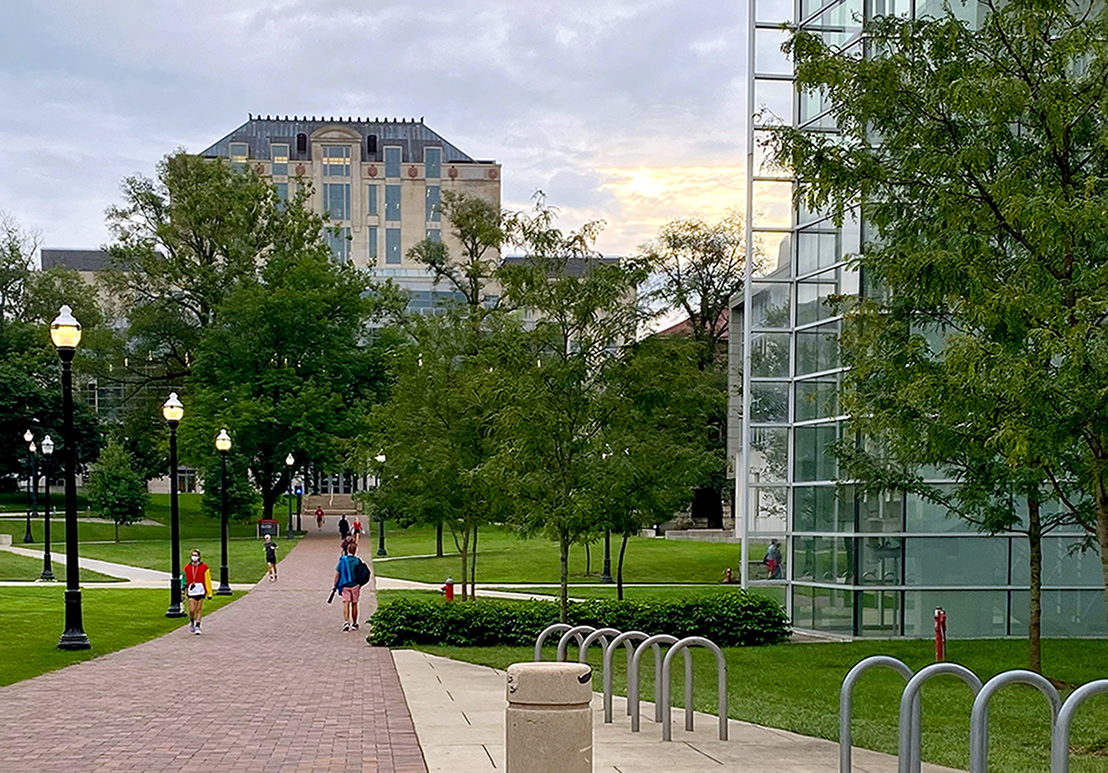New undergraduate general education will benefit public health students
Public health faculty, staff explain revised model
By Denise Blough

Expected to launch autumn 2022, Ohio State’s new general education (GE) model for undergraduate students will focus on foundation courses, thematic pathways and a new “launch seminar” and “reflection seminar” that help students connect the dots between courses. It will also allow students to better tailor their academic experience to align with their interests and goals.
“The GE has been streamlined and reduced about 20 credit hours so that students have the opportunity to explore other areas through electives, certificates, minors or second majors,” said Gail Kaye, director of undergraduate programs and clinical professor at the College of Public Health.
The last time Ohio State revised its GE program was over 30 years ago, and the new model ensures a contemporary and well-rounded foundation for those pursuing undergraduate degrees, said Kaye, who’s served on the GE Implementation Committee along with 23 other faculty and staff across the university.
Kaye helped explain some of the highlights of the new GE structure:
- Foundation courses in key areas including natural science; social and behavioral sciences; literary, visual and performing arts; race, ethnic and gender diversity; history; and writing.
- A mandatory four to six credit hours in the “Citizenship for a Diverse and Just World” thematic pathway, which must be paired with another thematic pathway such as “Lived Environments,” “Health and Wellbeing” or “Sustainability.”
- A launch seminar that introduces students to the goals and concepts of the GE curricula and a reflection seminar, during which students will showcase what they’ve learned from engaging in GE courses.
- “Embedded literacies”of writing, data analysis and technology that cut across GE courses to ensure students have necessary skills for entering the workforce.
“The new GE emphasizes not just cognitive and intellectual development, but social and emotional development, as well as a deep understanding of culture, diversity and respect,” said Kaye, who also serves on the University-Level Advisory Committee for General Education. “All of this is critically important for being able to be a successful global citizen today and tomorrow.”
Public health coursework would fit well in multiple theme areas such as “Lived Environments” and “Health and Wellbeing,” and Kaye said the college is working on submitting courses for inclusion. Final decisions will be determined by the College of Arts and Sciences Curriculum Committee.
“We hope students outside public health will choose to take GE courses that are offered by the college to enrich their academic experience and education,” said Kynthia Droesch, director of the College of Public Health Office of Academic Program and Student Services and a member of the GE Advising Subcommittee.
In anticipation of the new GE, Kaye recently piloted the use of a tool that could be used for the reflection seminar in one of her courses (PUBHHBP 3510, “The Role of Behavior in Public Health”), asking students to showcase three assignments that impacted them most and describe why.
“The reflection seminar will help students understand the importance of general education and how everything is related; it will help them embrace why they have to take chemistry, English, etc.,” Kaye said. “It really forces them to think about it and make connections.”
In addition to Kaye and Droesch, Professor of Epidemiology Amy Ferketich serves on the GE Policies and Procedures Subcommittee, as well as the College of Arts and Sciences Curriculum Committee.
About The Ohio State University College of Public Health
The Ohio State University College of Public Health is a leader in educating students, creating new knowledge through research, and improving the livelihoods and well-being of people in Ohio and beyond. The College's divisions include biostatistics, environmental health sciences, epidemiology, health behavior and health promotion, and health services management and policy. It is ranked 22nd among all colleges and programs of public health in the nation, and first in Ohio, by U.S. News and World Report. Its specialty programs are also considered among the best in the country. The MHA program is ranked 5th and the health policy and management specialty is ranked 21st.